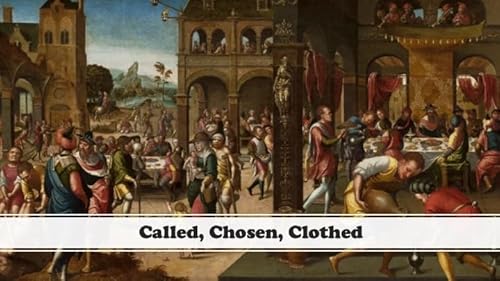
Episode 1276: Called, Chosen, Clothed
カートのアイテムが多すぎます
カートに追加できませんでした。
ウィッシュリストに追加できませんでした。
ほしい物リストの削除に失敗しました。
ポッドキャストのフォローに失敗しました
ポッドキャストのフォロー解除に失敗しました
-
ナレーター:
-
著者:
このコンテンツについて
The Parable of the Wedding Feast (Matthew 22:1-14) is a profound allegory that outlines the history of salvation, revealing God's persistent invitation, the tragedy of human rejection, and the ultimate expansion of the Kingdom. Jesus tells the story of a King (God the Father) who prepares a lavish wedding banquet for His Son (Jesus Christ) and sends two waves of messengers to invite the original guests (the leaders and people of Israel). Shockingly, those first invited not only pay no attention—prioritizing their fields and businesses—but also seize, mistreat, and kill the servants. This escalating rebellion mirrors Israel's history of rejecting the prophets and foreshadows the religious leaders' impending murder of the Son, leading to the King's just judgment against the city.
The story pivots dramatically from judgment to breathtaking grace and radical inclusivity. Because the original guests proved themselves undeserving through their refusal and violence, the King commands His servants to go into the "street corners" and invite "anyone you find, both bad and good." This explosive expansion of the guest list signifies the turning point in salvation history: the Gospel invitation is extended from the exclusive call to Israel to the open, universal call to the Gentiles, sinners, and marginalized—those who had no previous claim to the covenant. This act perfectly reflects Jesus’ ministry, where He made room at the table for all who were willing to come, demonstrating that the only qualification for entry is a humble willingness to accept the King's mercy.
However, Jesus adds a final, crucial twist: a man is found at the feast without "wedding clothes" and is cast out. This does not represent poverty but pride—the refusal to wear the garment the King provides (symbolizing the righteousness of Christ and the inner transformation required by the new covenant). This final judgment is a sobering reminder that while grace is freely extended to all the "bad and good" from the highways, it is not a license for spiritual apathy. The Kingdom of God is both inclusive and exclusive: it welcomes all who come in humility and faith, but it excludes all who presume to enter, clothed in their own self-righteousness or clinging to an unchanged heart. The feast is ready, but a genuine response demands both acceptance of the invitation and transformation by the King's grace.


